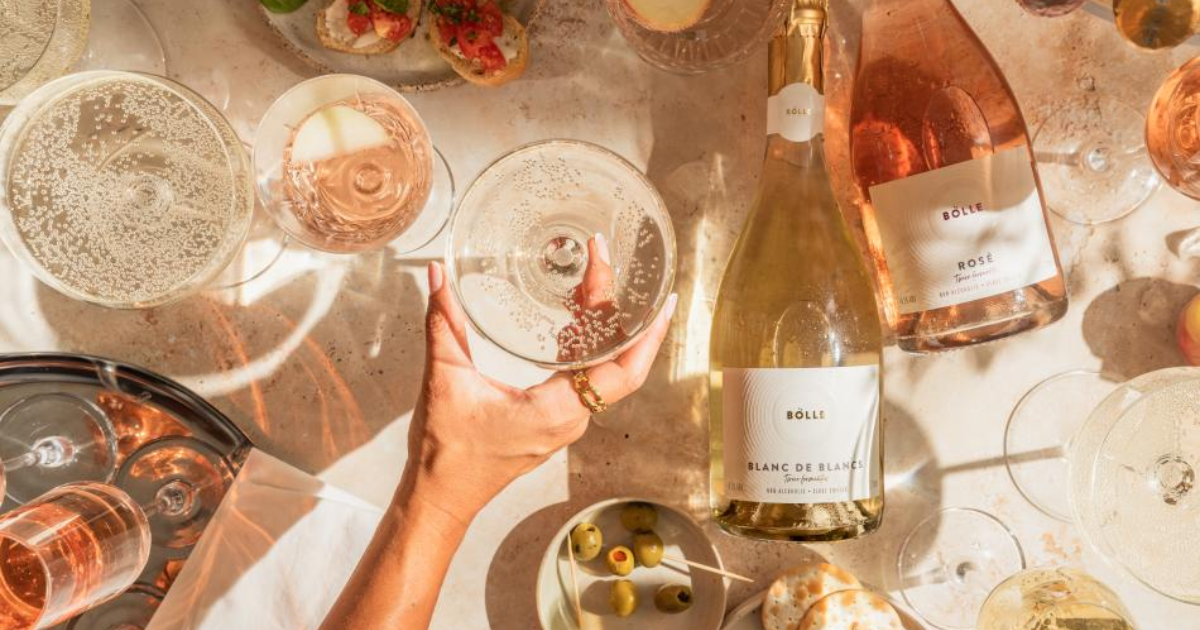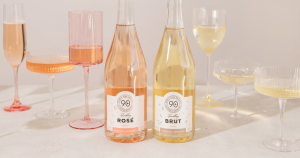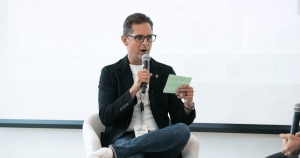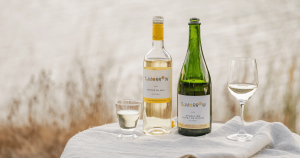Partner Content: BOLLE
The non-alcoholic wine category has been one of the most challenging to crack, but BOLLE is aiming to change that. In this exclusive interview, Gary Read, CEO of BOLLE, shares how his business background and Founder Roberto Vanin’s scientific expertise have come together to level up the quality and experience of non-alcoholic wine. From their unique double fermentation process to their vision for the industry, Read explains why BOLLE is poised to complement the traditional wine industry amid swiftly changing consumer preferences.
Dry Atlas: Gary, you come from a strong business background and are relatively new to the beverage space. What motivated you to join this industry on a personal level?
Gary Read: You’re right—I’ve spent most of my career in tech, launching startups and leading companies that eventually merged or were acquired. After years in that fast-paced world, I found myself wanting a change. I wanted to build something with a positive social impact, something I could be genuinely proud of rather than just another company people wouldn’t remember.
I’ve been interested in the non-alc space for a while. Years ago, I started exploring it, but back then, there were only a few products available, and the quality wasn’t quite there. As someone who enjoys wine, I found it frustrating that non-alcoholic beers had come a long way, yet I couldn’t find a non-alcoholic wine that met my expectations. Then I discovered Roberto and his work with BOLLE. Before I even spoke to him, I tried the product, and it stood out. That’s when I realized there was real potential here, and I wanted to be part of it.
DA: It seems a new non-alcoholic wine brand is hitting the market weekly. What was the impetus for launching one in 2024?
GR: Roberto started working on BOLLE back in 2021 after leaving his corporate role. He’d been in beverage R&D for his entire career, most recently as Chief R&D Officer for Suntory Europe, working on brands like Lucozade. But he’s also a wine lover, growing up in Treviso, right in the heart of Italy’s Prosecco region. Like me, he couldn’t find a non-alcoholic wine he enjoyed, so he decided to create one.
It took him nearly three years to refine the winemaking process and develop a product he was proud to bring to market. For Roberto, it wasn’t just about filling a gap. It was about using his expertise in R&D and his passion for wine to solve what many see as an unsolvable problem.
DA: As a businessperson and non-alc consumer, did you think it was possible to create a non-alcoholic wine that met the growing expectations in this category?
GR: Honestly, I was skeptical. I’d tried 20 or 25 different non-alcoholic wines, from startups to established brands, and I was starting to think it might be a dead end. But then I came across BOLLE, and the quality of Roberto’s product caught my attention.
I consulted a longtime winemaker friend in Napa Valley about Roberto’s process. I still remember standing in a coffee shop parking lot, explaining the idea of double-fermenting de-alcoholized wine. His reaction was, “That’s brilliant. If he’s solved that, it’s groundbreaking.” That conversation was a turning point for me. It confirmed that what Roberto was doing was truly innovative and worth pursuing. Together, we’ve brought in more expertise, including my Napa friend, to help expand into the US market.
DA: What makes BOLLE different? Could you explain the double fermentation process and why it results in a superior product?
GR: The double fermentation process is at the heart of what sets BOLLE apart. We start with high-quality base wine—our Chardonnay comes from Spain—and run it through a dealcoholization machine. The challenge with these machines is that they strip the wine of its structure, aromas, and complexity, often leaving something watery and even off-putting.
Most producers try to fix this by adding sugar, glycerin, or artificial flavors. We don’t. Instead, we put the dealcoholized wine back into a fermentation tank with fresh grape juice and proprietary yeast strains, running a second fermentation. This process rebuilds the wine’s structure, aromas, and flavors naturally. It’s why our ingredient list is so simple: just fermented grape juice, no additives.
The tricky part is that fermentation naturally produces alcohol, so we’ve had to develop yeast strains that produce only minimal alcohol. This innovation is so unique that we’ve filed two patents: one for the process and one for the yeast. Roberto’s scientific approach, honed over decades in R&D, is what made this possible. The result is a product that delivers a true wine experience—aroma, flavor, and mouthfeel—all without added sugar or artificial enhancements.
DA: As the quality of non-alcoholic wine improves, do you see it as a competitor to or complement for the traditional wine industry?
GR: It’s definitely complementary. Look at the pressures on the wine industry: younger generations are drinking less, there’s growing interest in cannabis, and health warnings about alcohol are becoming more prevalent. The World Health Organization recently stated that no amount of alcohol is safe, and even the Surgeon General has called for warning labels on alcoholic beverages. These shifts are forcing the industry to adapt.
We’re not looking to replace traditional wine. We aim to offer consumers more options. Just like Coke has Diet Coke and caffeine-free versions, the wine industry can evolve to meet changing consumer needs. I see non-alcoholic wine as a key part of the future for the half-trillion-dollar wine industry, as it needs to adapt to changing consumer preferences. We’d like to be a key part of that—not just with our own brand, but also working with other wineries to allow them to benefit from our knowledge and intellectual property.
DA: Well said. What’s next for BOLLE as you transition from launch to growth?
GR: The first few months have been all about learning—listening to our customers and refining our approach. Now we’re entering the next phase. It’s time to move from crawling to walking and, hopefully, running by the end of the year. The non-alc category is still in its infancy, but there’s so much potential. To succeed, we need to normalize these products. Just like no one blinks if someone orders a Diet Coke, non-alcoholic wine should feel like a natural choice. Our goal is to help make that shift happen.
This interview has been edited for length and clarity.






